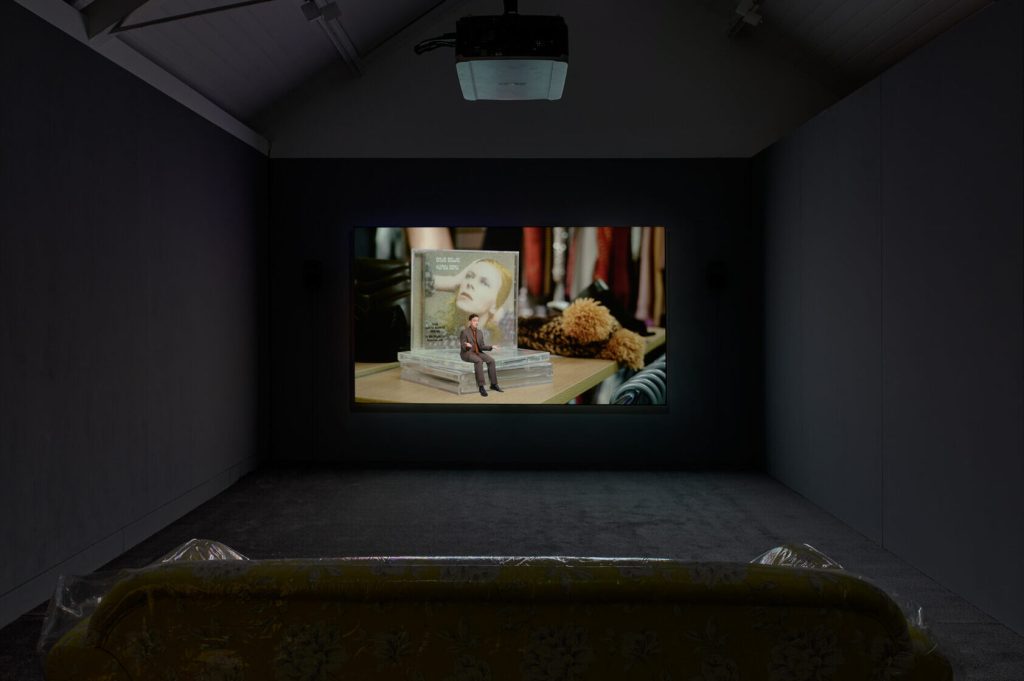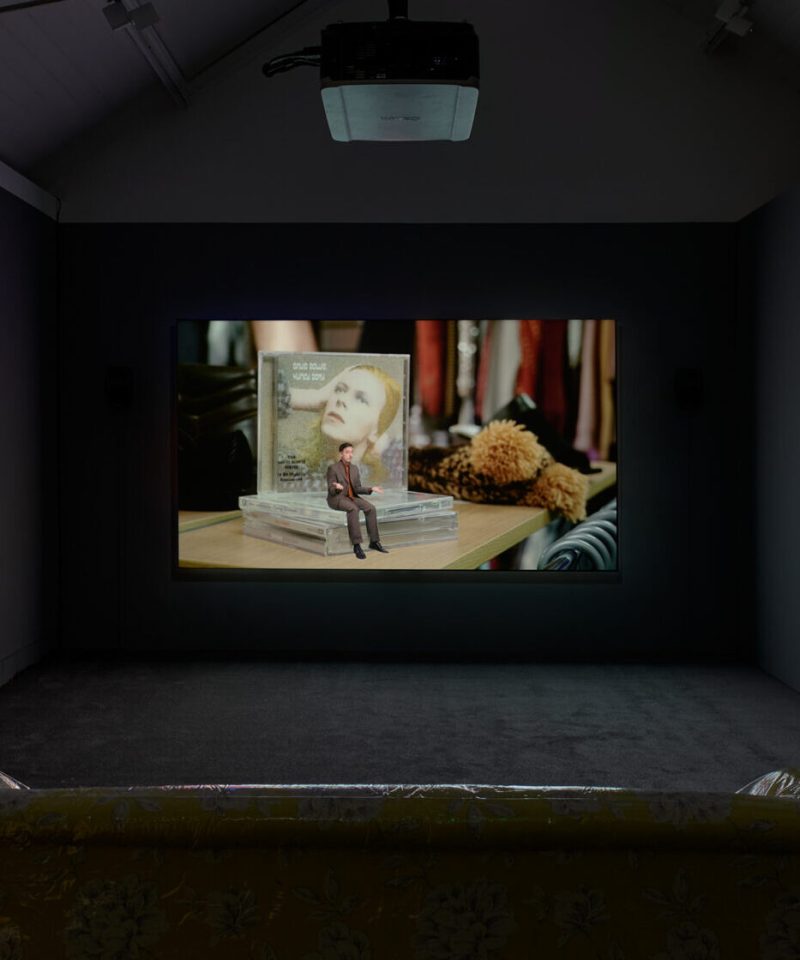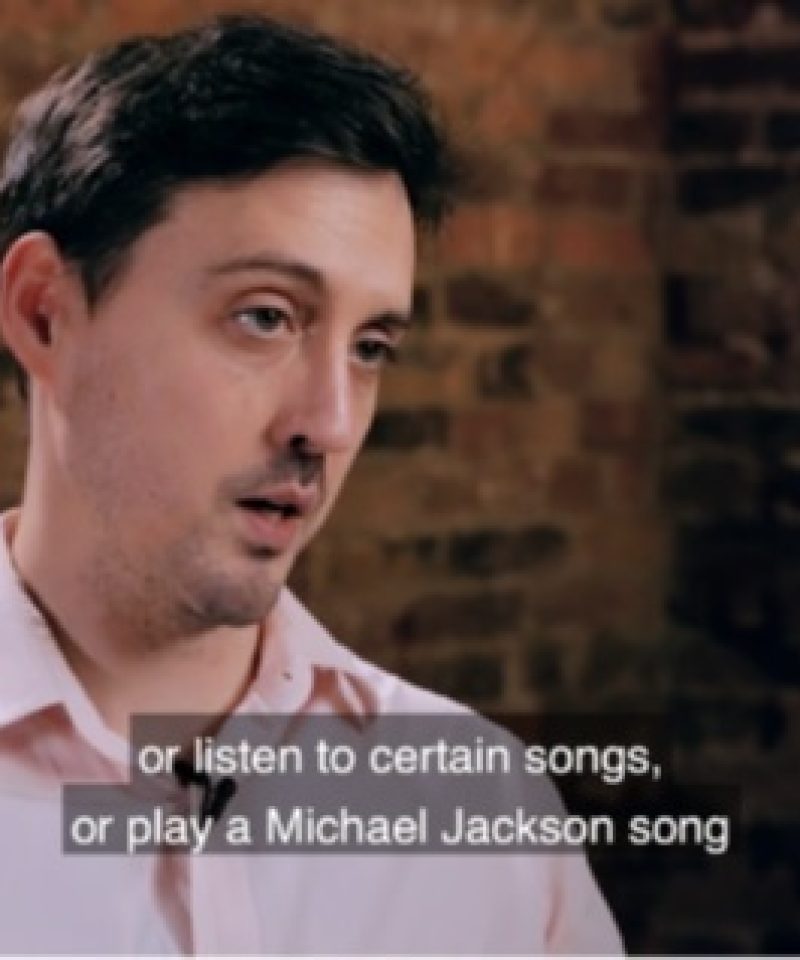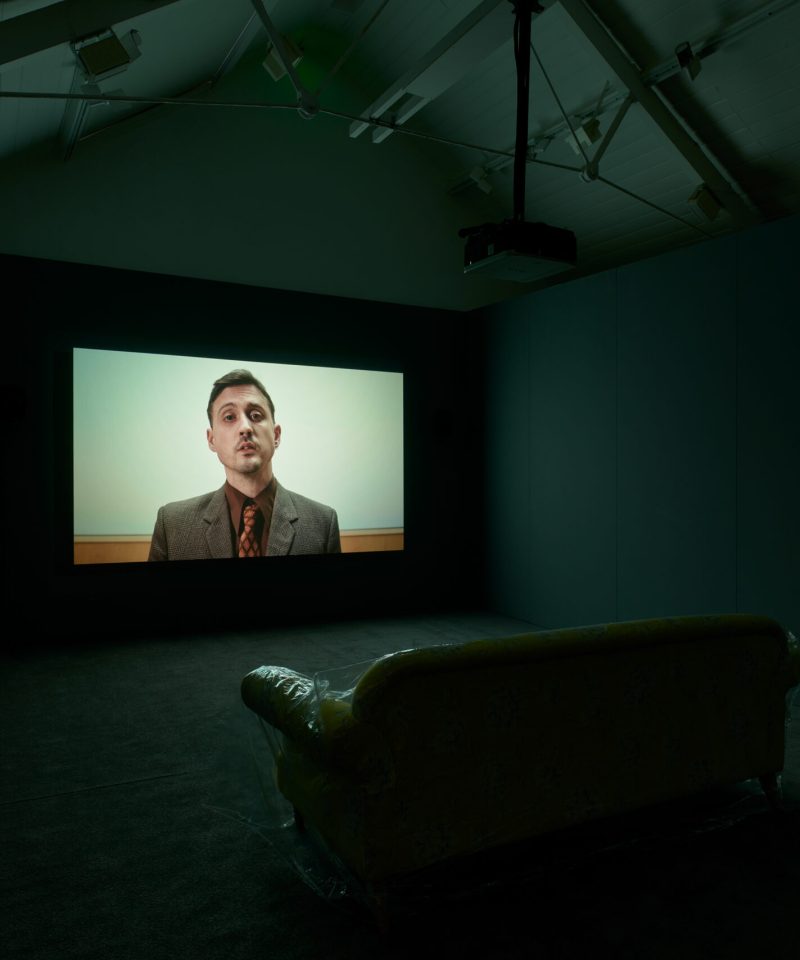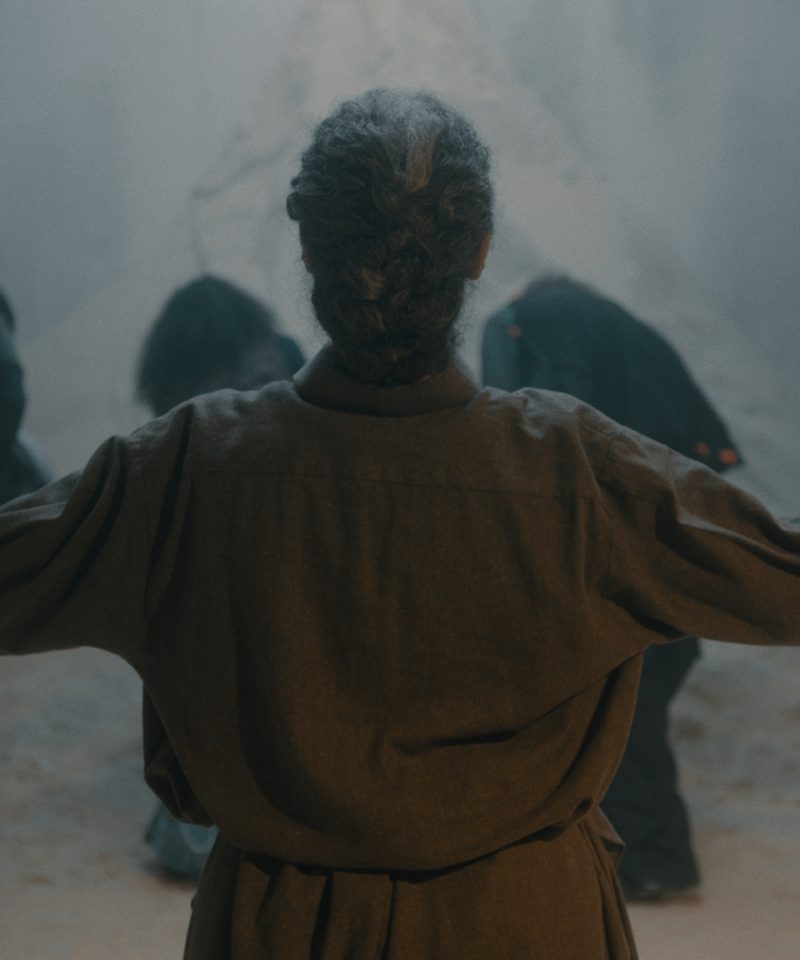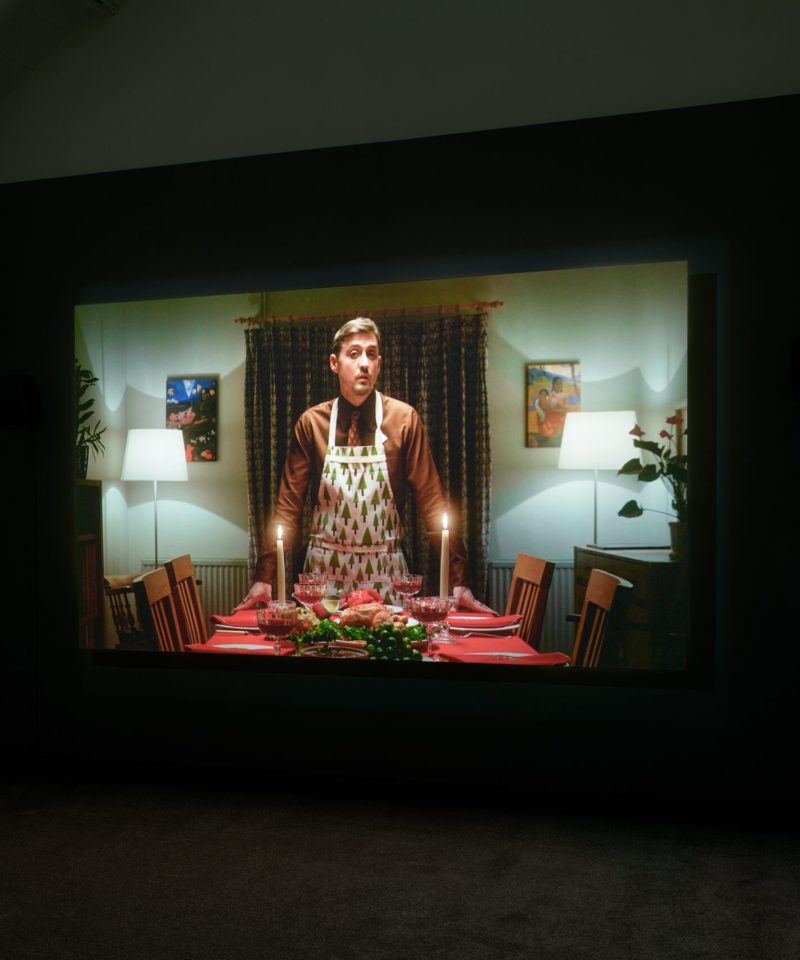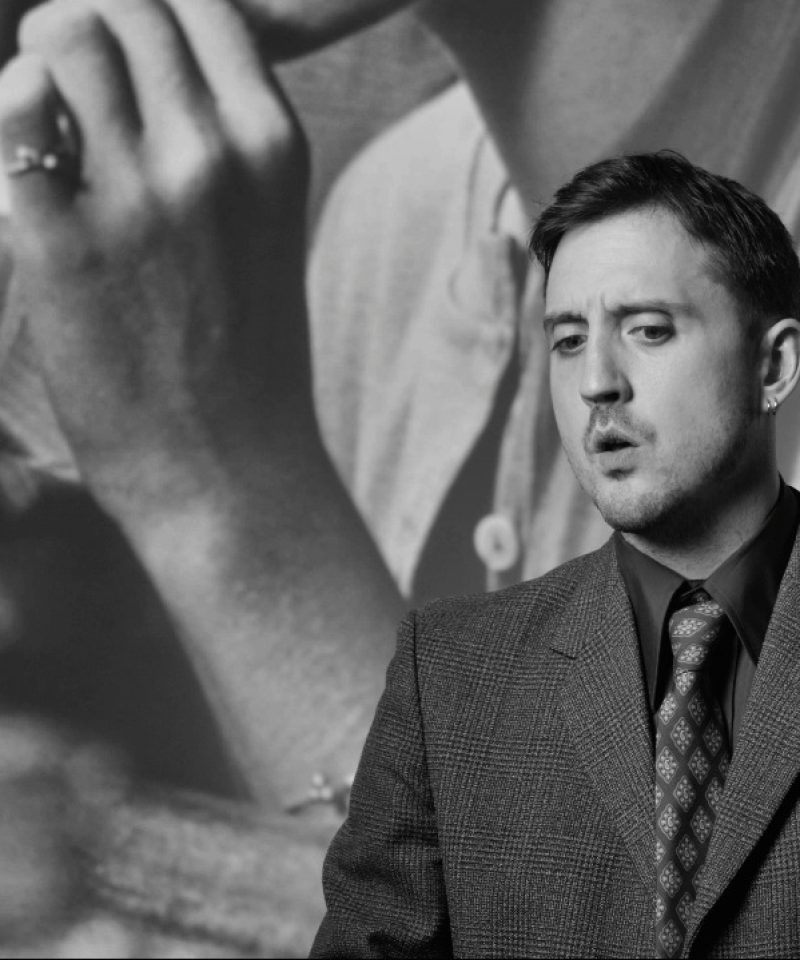What do you do when your dad is one of the bad ones? One of the really bad ones. I’m not talking about the ones who barge in front of you on tube platforms and spread their legs widely and scream loudly down the phone, encroaching on all of your spaces whilst you’re just trying to have a quiet commute to work without having a panic attack about another overwhelming week ahead. They are pretty awful. And ok, #NotAllMen do this but I’m pretty sure a lot of people have encountered one that has. Anyway, I mean what do you do when your dad is really awful. What if your dad was Bill Cosby? Or Woody Allen? Or Kevin Spacey? Are they awful people? Or did they just do awful things? Is there really a difference?
Guy Oliver’s You Know Nothing of My Work offers a nuanced examination into this conversation. With razor sharp wit and catchy songs, Guy invites us to ask questions about what we do with the work of these once-admired men who have made a significant contribution to popular culture, having gifted the public with films and books and music that we once loved. Knowing what we know today about the auteur, Woody Allen and “America’s Dad”, Bill Cosby, how does our relationship to their work change? And how much of their work is intimately bound up with who they are? And, if this work has influenced us, imprinted itself upon our psyche, has a part of them become a part of us? What if we thought of these celebrities as our cultural fathers?
At the start of her book on fatherhood and feminism titled Daddy Issues, Katherine Angel re-visits the moment when the wife of disgraced Hollywood producer Harvey Weinstein announced their divorce swiftly after the allegations of his persistent sexual abuse towards women came to (public) light. And Angel makes an important point: you can divorce your husband, but you can’t divorce your dad.[1] And even if you could divorce your dad, he is in you – he is half of you. He raised you – or if he didn’t raise you, his absence raised you. Something seeps in. He’s felt somewhere. Maybe you love him, or maybe you don’t. I’m being messy because it becomes messy when you think about these figures as fathers. Or when you think about our fathers as these figures.
When thinking through notions of fatherhood and the relationships that we foster with our familial, cultural or surrogate fathers, turning to psychoanalytic thought feels inevitable. Psychoanalysis requires us to return to the past, combing through our family history and repressed childhood memories, to look back in hindsight and unpick the many ways it may or may not have left a mark. Who best to consult than the founding father of psychoanalysis himself, Freud, and his child, the Oedipus Complex, which according to Freud, is something that all boys encounter between the ages of three and six and the move through it is foundational to the emergence of an individual’s identity: “anyone who fails to do so falls a victim to neurosis.”[2] A brief overview of the theory goes as follows: male babies and young boys rely on their mothers to feed and take care of them, forging an attachment between the two. This relationship is one in which the child is ‘satisfied’ by the mother and therefore unconscious sexual feelings towards her arise. The child then recognises a sexual rivalry between himself and the father, developing a desire to get rid of his dad by killing him; however, he understands that the father is bigger and stronger than him, forming a fear that the father will castrate him to prevent him from pursuing a sexual relationship with his mother. The Oedipal conflict is resolved when the boy is able to identify with the father and establish his own identity, through adopting his personality traits and position of authority within the family and society more broadly. This in turn births his superego, the moralising component of his psyche. According to Freud, boys that are unable to develop this identification with the father become more susceptible to neuroses because they fear and/or idealise their fathers. This can cause them to engage in splitting, a defence mechanism in which the subject can only divide people into binary categories of good and bad, as opposed to being able to account for the complexity of humans and their capacity to be a multiplicity of things.
When the rallying call to cancel someone happens on Twitter, this splitting mechanism is often employed; the cancelled individual is cast as all-bad. I’m certainly guilty of it and when watching Guy’s film, I do struggle to have any leniency towards the topic. I believe women and I think that these men are scumbags. I find it hard to think about someone like Woody Allen having any good features, let alone any redeeming ones. Maybe I’m stuck in the Oedipal phase.
But it is also important to note that to cancel someone is tongue-in-cheek and we all know that you can’t literally ‘cancel’ a human being. The power of cancelling gives a voice to those that are unheard, allowing a kind of online democracy to form. There are people on the internet who get very upset about being ‘cancelled’; they even decided to write a public letter about it and its impact on freedom of speech.[3] But all ‘cancel culture’ is is criticism and it’s largely criticism of those who hold bigoted views. You can’t cancel a person but you can cancel their continuing wealth and power.
Freud’s Oedipus Complex is not without its problems due to its heteronormativity and sole focus on the psycho-sexual development of young boys. He did create an Electra Complex to account for the development of young girls but it was a less-developed theory. It also places fatherhood at centre stage and in its essence is foundational to the (re)production of patriarchal culture. Patriarchy, like psychoanalysis, places the father at the head of the table but allows him to remain powerful when he is absent from it. As Tabitha Freeman highlights: “The characterisation of the father as an absent authority at once confounds the apparent centrality of fatherhood within psychoanalytic discourse while reinforcing the symbolic reach of paternal power.”[4] Freeman argues that within the Oedipus Complex, the father maintains a civilising function, integral to the ‘proper’ development of the child: “the Oedipus Complex defined the father’s principal role as disrupting the naturalized mother-child dyad and turning the child toward culture.”[5] This Oedipal father, Freud and the men within Guy’s film have all been put on a pedestal with their capacity to enrich us with culture and influence our identities.
You Know Nothing of My Work presents fatherhood as a problem, as something that we need to remain cautious of due to the harm it can cause when left unchallenged. The most explicit reference to fatherhood emerges in the fourth chapter of the film, ‘Leave of Absence’, when Guy laments the disappointment he feels at these fallen icons, to whom he had remained a dedicated fan, even in their less popular days: “When others walked, I stuck it out.” Whilst previous songs within the film are comical and upbeat in tempo, this chapter is melancholic in tone with an accompanying black and white treatment of the footage, contributing to this sombre mood. Guy sings: “Thanks for ruining the concept of a surrogate father. Thanks for ruining the years 1984-92.” He is specifically referencing Bill Cosby who was known to millions of people as “America’s Dad” and memorialising the years in which the much-loved ‘The Cosby Show’ ran, a sitcom that YouTuber T1J defends as still his favourite show in an earlier chapter of the film, despite agreeing that the sexual crimes that Bill Cosby committed were terrible. Like an abandoned child, the version of Guy within this chapter reflects a mourning that many people feel when they discover that their childhood hero isn’t the saint that they imagined them to be. He’s lost someone that he perhaps over-idealised as a person he had put his trust into, and to whom he had invested himself emotionally, culturally and financially. It is difficult, however, to think about this ‘mourning’ when you consider the harm caused to the victims, an argument that is succinctly articulated by Rebecca Lucy Taylor AKA pop artist Self Esteem in a momentous scene in the following chapter, turning the debate on its head and intersecting it with criticism of the necessity of the film.
Within psychoanalysis, Jacques Lacan developed his notorious theory of the mirror stage, drawing upon Freud’s Oedipus Complex to reinterpret the formative moment in a child’s Ego development. During this phase, the child identifies themselves in a mirror for the first time (usually at around six months), allowing them to transform into a subject, whilst seeing themselves externally as an object. This precedes their ability to grasp language, therefore “I is precipitated in a primordial form.”[6] The child sees the reflected image of themselves as whole; however, a “discordance with his own reality occurs” as the actual body of the child is underdeveloped and vulnerable, causing a “fragmented image of the body”.[7] In her text on the mirror stage, cultural theorist Jane Gallop highlights that it is “the founding moment of the imaginary mode, the belief in a projected image.”[8] This is what Lacan believed to be the core function of the ego, “the function of misrecognition.”[9] This méconnaissance, then, is what arises when we project an ideal image onto, or identify ourselves with, figures within the public eye and we discover that the personal mythology we ascribed to them doesn’t match the reality, causing a fragmentation.
Mirroring is an important concept in psychoanalysis and within You Know Nothing of My Work, mirroring, both real and symbolic, occurs on multiple levels. To mirror, by definition, means to reflect, to repeat and to reproduce. Within each chapter, Guy mirrors male characters in different forms, embodying different versions of himself and others that we know, blurring the distinction between these characters and himself so that he occupies a dichotomy as both the criticiser and the criticised, the knowledgeable and the naive, the father and child.
This allows Guy to play with the power dynamics of such a relationship, subverting his own position within that. It also enables him to parody his own auteurship by provocatively positioning himself at the centre of the conversation and further complicating his own placement within the debate. A relationship with any parent is a kind of two-way mirroring, through the development of learned behaviours and personality traits and through the parents’ projections onto the child of who they envision them to become. We inevitably become products of the parents or guardians that raised us.
In the final chapter ‘Let Me Be Kevin’, Guy embodies the ultimate image of the father: inside the family home, at the head of the table, where he traditionally belongs in the heteronormative nuclear family setting, ready to carve the turkey. A position that symbolises his power within patriarchal society; he acquires the top seat of the table despite being traditionally absent from the duty of childcare. He concludes by providing no conclusion, and turns the mirror onto the audience, asking if our consciences are so clear that we are able to cast judgement onto these figures. Within this scene, he is parodying Kevin Spacey’s 2018 YouTube video ‘Let Me Be Frank,’ uploaded after Spacey was cut from ‘House of Cards’ and his character killed off due to the allegations of sexual assault made against him. It’s an uncomfortable watch; Spacey and Frank are blurred, making statements that allude to both real life and the television series: “in life and art, nothing should be off the table. We weren’t afraid; not of what we said, not of what we did, and we’re still not afraid.”[10] Guy mimics Spacey’s final statement: “conclusions can be so deceiving.” Guy, mirroring Spacey, places himself in the intimate space of the home and this depiction of a private self in a seemily intimate moment with the family suggests that they are trying to make us trust them, to see them like a father.
Perhaps we are all collectively grieving these father figures, these men we once respected and trusted and cherished, who we took in as a part of ourselves, in whom we saw a part of ourselves, who formed a part of our childhood and impacted our identities. We’re all moving through a kind of Oedipal complex or we’re stuck in the mirror stage. Some might say that Twitter is letting us kill these dads, our Founding Fathers, and this might mean that great culture is going to get lost along the way. But, as Katherine Angel asks: “Is it ever possible to get rid of the father, or is he forever internalised?”[11] Guy Oliver’s You Know Nothing of My Work offers a complex and nuanced exploration into what we do with their work when our fathers have fallen from grace.
[1] Katherine Angel, Daddy Issues, 2019, 1.
[2] Sigmund Freud, Three Essays on the Theory of Sexuality, 1905, 226.
[3] ‘A Letter on Justice and Open Debate’, July 7, 2020, https://harpers.org/a-letter-on-justice-and-open-debate/.
[4] Tabitha Freeman Ph.D., ‘Psychoanalytic Concepts of Fatherhood: Patriarchal Paradoxes and the Presence of an Absent Authority’, Studies in Gender and Sexuality, 9:2, 2008, 117.
[5] Freeman, ‘Psychoanalytic Concepts of Fatherhood’, 119.
[6] Jacques Lacan, ‘The Mirror Stage as Formative of the I Function,’ Écrits, 2006, 76-78.
[7] Lacan, ‘The Mirror Stage as Formative of the I Function,’ 76.
[8] Jane Gallop, ‘Lacan’s ‘Mirror Stage’: Where to Begin,’ SubStance, 11/12, 1982, 121.
[9] Lacan, ‘The Mirror Stage as Formative of the I Function,’ 80.
[10] Kevin Spacey, ‘Let Me Be Frank,’ December 24, 2018, https://www.youtube.com/watch?v=JZveA-NAIDI&t=45s.
[11] Angel, Daddy Issues, 71.
